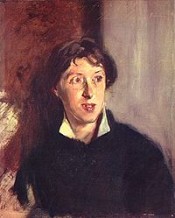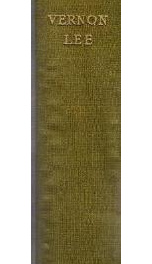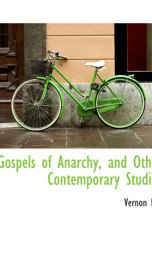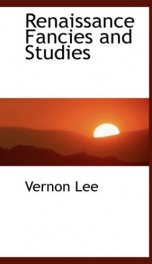Lee Vernon

Vernon Lee was the pseudonym of the British writer Violet Paget (1856 – 1935). She is now known mostly for her supernatural fiction; she wrote also essays and poetry; she contributed to The Yellow Book. She was a follower of Walter Pater. She was born at Château St Leonard, Boulogne, France. She was the half-sister of Eugene Lee-Hamilton, adapting her pseudonym from his surname; her mother was widowed in 1852, and her father was Eugene's tutor. She spent time in London, and later resided on the hillside just outside of Florence, in the Palmerino villa, from 1889 until her death in 1935, with a brief interruption during the war. Her library was left to the British Institute of Florence and can still be inspected by visitors. In Florence she knit a lasting friendship with the painter Telemaco Signorini and the learned Mario Praz, who at that time was very young; she encouraged his love of learning and of the english literature. She played very well the harpsichord, and her appreciation of ancient music transpires in her major work, "Studies of the Eighteenth Century in Italy"; this book was widely influential. In the 1907 preface to the Studies, she recalls one anecdote about her love of music: when she was a little girl, her mother came across a bundle of sheets of eighteenth century music; among them, some airs of the Saxon, Hasse. While her mother sat at the piano trying to decypher those old keys, she was so nervous that she had to escape to the garden: she feared lest the famous Hasse failed her expectactions. The first notes of the air (Pallido il Sole, one of the legendary airs sung by Farinelli) reached her through the open window, and filled her with enchantment. An engaged feminist, she always dressed á la garçonne, and was a member of the Union of democratic control[1]. Her literary works explored the themes of haunting and possession. The English writer and translator, Montague Summers described Vernon Lee as "the greatest [...] of modern exponents of the supernatural in fiction."[2] "The Lie of the Land", in the voume "Limbo, and other Essays", has been one of the most influential essays on landscaping. Additionally she wrote, along with her friend and colleague Henry James, critically about the relationship between the writer and his/her audience pioneering the concept of criticism and expanding the idea of critical assessment among all the arts as relating to an audience's (or her personal) response. She was a strong, though vexed, proponent of the Aesthetic movement, and after a lengthy written correspondence met the movement's effective leader, Walter Pater, in England in 1881, just after encountering his famous disciple Oscar Wilde. Her interpretation of the movement called for social action, setting her apart from both Wilde and Pater.
do you like this author?
What readers are saying
What do you think? Write your own comment on this book!
write a commentWhat readers are saying
What do you think? Write your own comment on this author!
write a commentBook list

Penelope BrandlingA Tale of the Welsh coast in the Eighteenth Century
Series:
Unknown
Year:
Unknown
Raiting:
3.5/5
Show more
add to favoritesadd In favorites

Limbo and Other EssaysTo which is now added Ariadne in Mantua
Series:
Unknown
Year:
Unknown
Raiting:
4/5
Show more
add to favoritesadd In favorites
Book list

Penelope BrandlingA Tale of the Welsh coast in the Eighteenth Century
Series:
Unknown
Year:
Unknown
Raiting:
3.5/5
Show more
add to favoritesadd In favorites

Limbo and Other EssaysTo which is now added Ariadne in Mantua
Series:
Unknown
Year:
Unknown
Raiting:
4/5
Show more
add to favoritesadd In favorites

VanitasPolite Stories (Lady Tal—A Worldly Woman—The Legend of Madame Krasinska)
Series:
Unknown
Year:
Unknown
Raiting:
4.5/5
Show more
add to favoritesadd In favorites

BelcaroBeing Essays on Sundry Aesthetical Questions
Series:
Unknown
Year:
Unknown
Raiting:
2.5/5
Show more
add to favoritesadd In favorites

EuphorionBeing Studies of the Antique and the Mediaeval in theRenaissance - Vol. II
Series:
Unknown
Year:
Unknown
Raiting:
4.5/5
Show more
add to favoritesadd In favorites

EuphorionBeing Studies of the Antique and the Mediaeval in theRenaissance - Vol. I
Series:
Unknown
Year:
Unknown
Raiting:
4/5
Show more
add to favoritesadd In favorites

Renaissance Fancies and StudiesBeing a Sequel to Euphorion
Series:
Unknown
Year:
Unknown
Raiting:
3/5
Show more
add to favoritesadd In favorites

The BeautifulAn Introduction to Psychological Aesthetics
Series:
Unknown
Year:
Unknown
Raiting:
3/5
Show more
add to favoritesadd In favorites

penelope brandling a tale of the welsh coast in the eighteenth century
Series:
Unknown
Year:
Unknown
Raiting:
5/5
Show more
add to favoritesadd In favorites

limbo and other essays to which is now added ariadne in mantua
Series:
Unknown
Year:
Unknown
Raiting:
3/5
Many of the earliest books, particularly those dating back to the 1900s and before, are now extremely scarce and increasingly expensive. We are republishing these classic works in affordable, high quality, modern editions, using the original text and artwork.
Show more
add to favoritesadd In favorites

juvenilia being a second series of essays on sundry sthetical questions volu
Series:
Unknown
Year:
Unknown
Raiting:
3.5/5
Show more
add to favoritesadd In favorites

gospels of anarchy and other contemporary studies
Series:
Unknown
Year:
Unknown
Raiting:
5/5
In such of us as not merely live, but think and feel what life is and might be, there is enacted an inner drama full of conflicting emotions, long drawn out through the years, and, in many cases, never brought to a conclusion. It begins with the gradual suspicion, as we pass out of childish tutelage, that the world is not at all the definite, arranged, mechanical thing which the doctrine convenient to our elders and our own optimistic egoism have led us to expect; that the causes and results of actions are by no means so simple as we imagined, and that good and evil are not so distinctly opposed as black and white. We guess, we slowly recognize with difficulty and astonishment, that this well-regulated structure called the universe or life is a sham constructed by human hands; that the reality is a seething whirlpool of forces seemingly blind, mainly disorderly and cruel, and, at the best, utterly indifferent; a chaos of which we recognize, with humiliation turning into cynicism, that our poor self is but a part and a sample. . . . --This text refers to an alternate Paperback edition.
Show more
add to favoritesadd In favorites
What readers are saying
What do you think? Write your own comment on this author!
write a commentGenre
- Books / Children's Books / History & Historical Fiction
- Biographies & Memoirs
- Nonfiction / Politics / General
- Literature & Fiction / Contemporary
- Health, Mind & Body / General
- Books / Alcott, Louisa May
- Literature & Fiction / Genre Fiction / Historical
- Literature & Fiction / Drama / British & Irish
- Literature & Fiction / Essays
- Law / England
if you like Lee Vernon try:
readers also enjoyed
What readers are saying
What do you think? Write your own comment on this author!
write a commentGenre
- Books / Children's Books / History & Historical Fiction
- Biographies & Memoirs
- Nonfiction / Politics / General
- Literature & Fiction / Contemporary
- Health, Mind & Body / General
- Books / Alcott, Louisa May
- Literature & Fiction / Genre Fiction / Historical
- Literature & Fiction / Drama / British & Irish
- Literature & Fiction / Essays
- Law / England
if you like Lee Vernon try:
readers also enjoyed
Do you want to exchange books? It’s EASY!
Get registered and find other users who want to give their favourite books to good hands!



